An Infrastructure Agenda For Municipal Eco-Socialism, Part 2
It's never a bad time to envision a better future
First, my apologies for the gap between newsletters. Autumn has turned out to be an incredibly busy time, as I rush to get plants in the ground while simultaneously harvesting and processing this year's yield. My food forest project (which I will write an update about soon) has lots of exciting new additions, which should make for some spectacular sights next season. I'm looking forward to sharing them with all of you.
Alright, on to this week's subject!
How can we both adapt to and head-off climate change? How can we transition to meeting our basic needs through democratically-managed public goods, rather than the nightmarish private hellscape of capitalism? And how can we do all this using readily available, low-cost processes that are viable anywhere on Earth?
These are the questions I asked myself when formulating my Infrastructure Agenda for Municipal Eco-Socialism. The series of threads (1, 2, 3) that I wrote on this topic will now get fleshed out a bit here in the newsletter.
Today, we move on to the second round of agenda items: municipal goat herds, county-owned heating contractors, town saunas, municipal nurseries, and the natural building corps.
Municipal goat herds. Goats are some of the most efficient animals on Earth: weeds go in and meat, dairy, fiber, and manure come out. A town herd can provide a short, secure supply chain for these essential goods while mowing down invasive weeds. Their unfussy eating habits can replace the carbon intensive and costly heavy equipment that municipalities typically use for landscaping work, and their suitability for this task is proven by the numerous commercial enterprises offering exactly this service (often to municipalities.) But who would manage the town goat herd? 4H is a USDA program that trains young people to raise animals; it is hugely popular across the country. A municipal flock could be managed by the local chapter, along with city staff, adding a valuable educational component to what is already a significant public good. Combined with the municipal food forests proposed in Part 1 of this series, a goat herd would add a meat/dairy/wool share to the local food UBI, plus manure for the town food forest. Goats, of course, are just one option: a suitable livestock herd can serve a similar purpose just about anywhere.
County-owned heating contractor. A Jean Pain system is a large compost pile with water pipes coiled inside. Since compost piles can hit 160 degrees F, a properly constructed system can provide a continuous supply of hot water for 6-18 months. Jean Pain systems are simple to construct and provide extremely reliable, fossil fuel-free heat, especially important as energy costs continue their never-ending rise. Public works departments already make the necessary ingredients: wood chips and grass clippings. All that would be required is a small crew to install the systems, bringing nearly free heat to homes that currently consume loads of oil and electricity for the same purpose. Compost piles needn't be limited to wood chips and grass clippings, of course: I've built such a system with goat manure and saw dust. Waste from animal agriculture is a major source of pollution; Jean Pain systems would turn that waste into an asset.
Town sauna. People need bread, but they need roses too. One of the great cruelties of life under capitalism is atomization: our separation and isolation into individual units as consumers and workers, leading to mass loneliness. Humans are social animals seriously harmed by loneliness; in fact, it's roughly the equivalent of smoking 15 cigarettes a day. A town sauna is an efficient way of creating a joyful community space that can break down social isolation. A community sauna is certainly much more sustainable than private saunas, and it's egalitarian too, since those that cannot afford to buy their own get to use it. This idea may sound exotic, but it operates on the same principle as a public library and it's less complex to operate than a municipal swimming pool. There is a tremendous need for community spaces that allow people to interact without spending money or drinking, and saunas fit the bill marvelously.
Municipal nurseries. Towns should sell locally-suited, productive plants at cost to residents. Many cities and states already do this sort of thing as part of urban forestry programs and reforestation initiatives, so the infrastructure already exists. But it's time to up our game. Towns should offer nursery stock for plants of all types: fruits and vegetables; native and pollinator habitat; construction; and fiber. Offering an abundant, low-cost supply of locally-suited cultivars and ecotypes, along with the information and expertise to use them, would be an enormous benefit to people who are currently forced to buy often unsuitable plants at high cost from big box stores. In addition to spring and fall plant sales, town nurseries could host seed libraries, seed swaps, and basic gardening courses. There is no shorter supply chain than the food you grow yourself
Natural Building Corps. The American housing crisis continues to worsen, with no end in sight. A solution that would help address both our housing shortage and the climate crisis is a Natural Building Corps. Think Habitat for Humanity, but for social housing built from sustainable, local materials. A state or county could hire the relevant trainers and supervisors to incubate municipal-level crews composed of city workers and community volunteers. Since the housing would be owned by municipality and distributed via democratic governance, this would increase the housing supply while decommodifying it. It would also train people in useful and marketable skills, while harnessing abundant volunteer enthusiasm (look no further than the clutch of fraternal societies in every small town.) By allowing municipalities rather than developers to decide on the location of housing, this approach would also create opportunities for greater walkability, beauty, and togetherness in small towns and cities. As to the climate portion, consider that a straw bale and timber frame house sequesters 15 tons of carbon in its walls; to meet the Paris Agreement's 2030 carbon sequestration target of 550 million tons per year would only require the construction of 36 million such buildings
Next time: Part 3! Tool-libraries & workshops, town canteens, winter gardens, town apiaries, and regional fabrics.

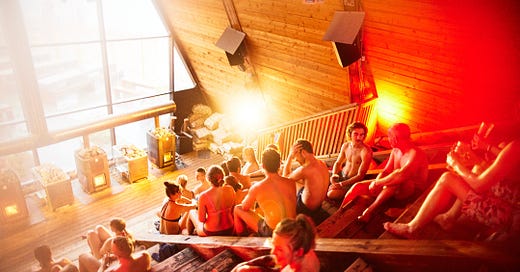



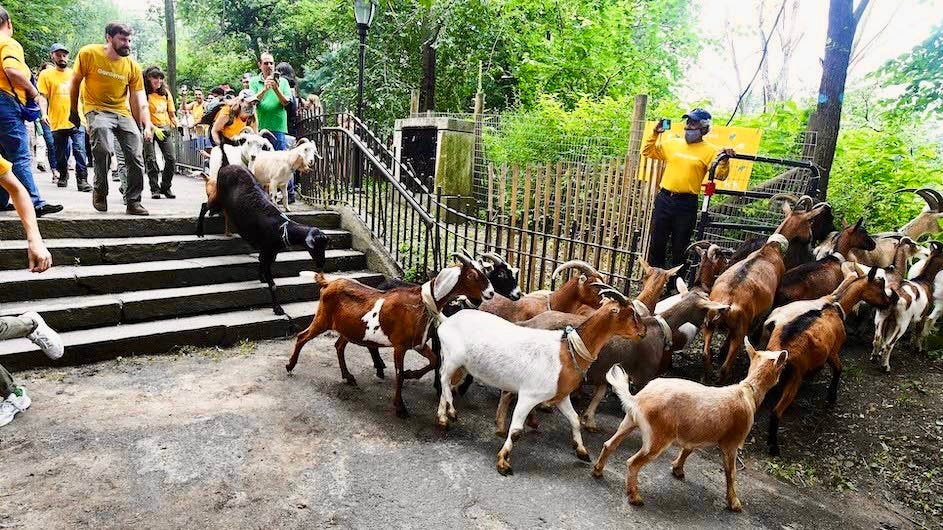
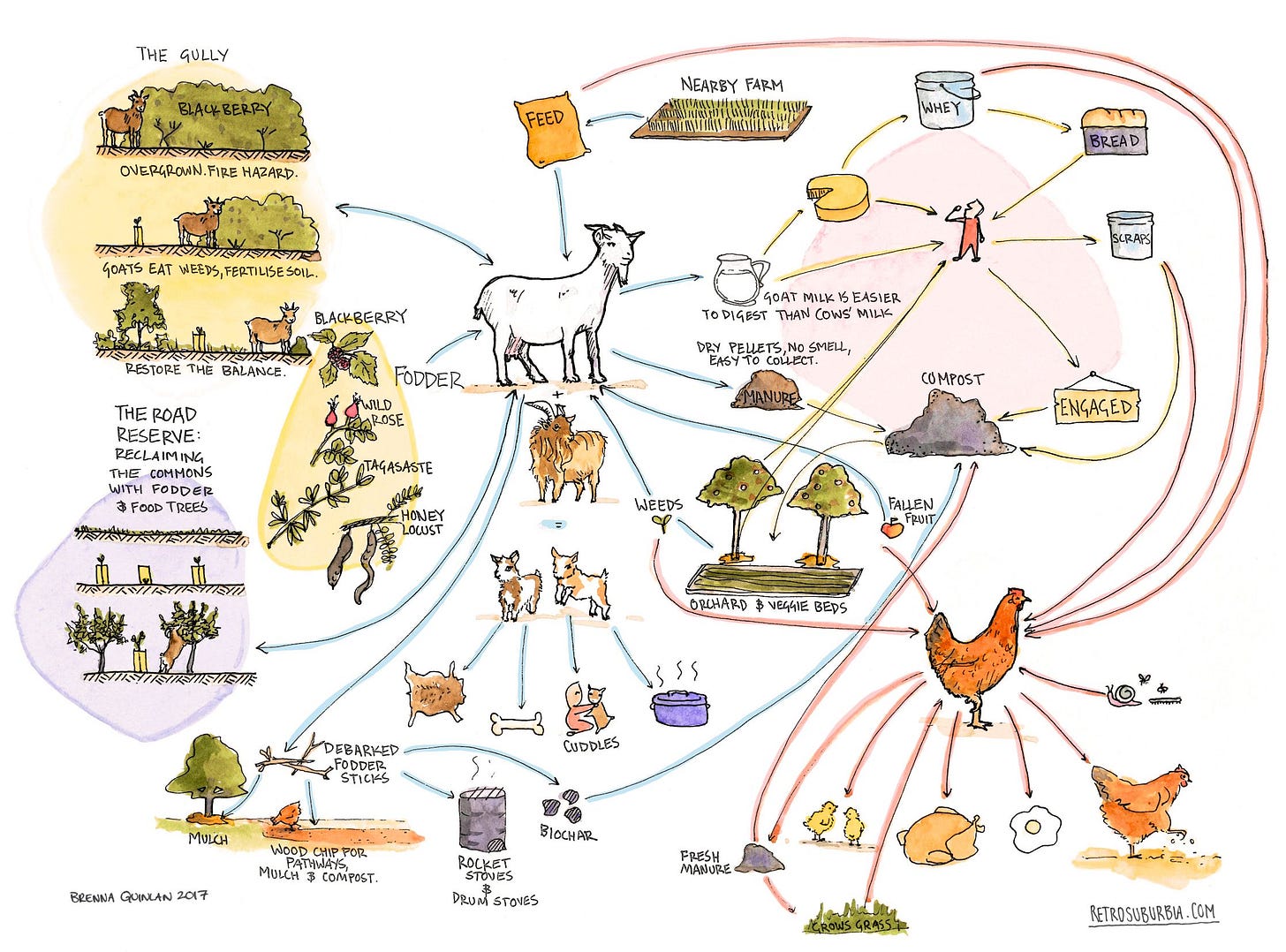
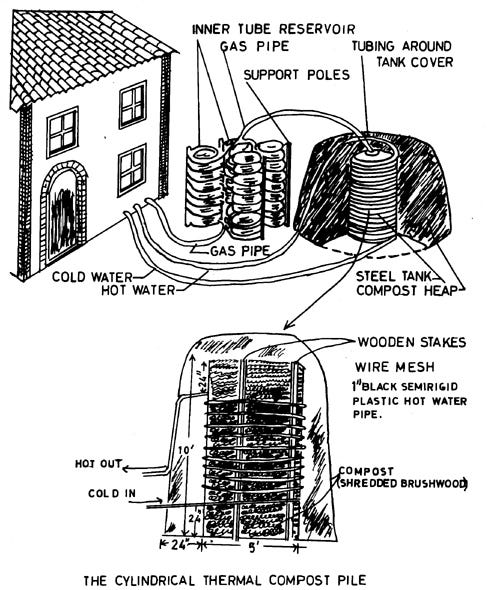
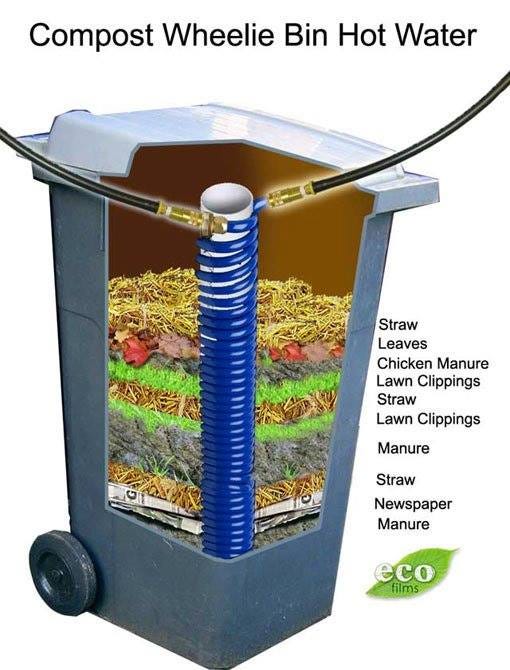
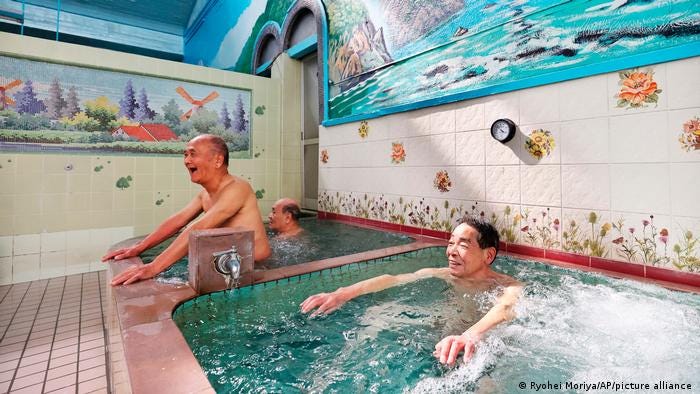
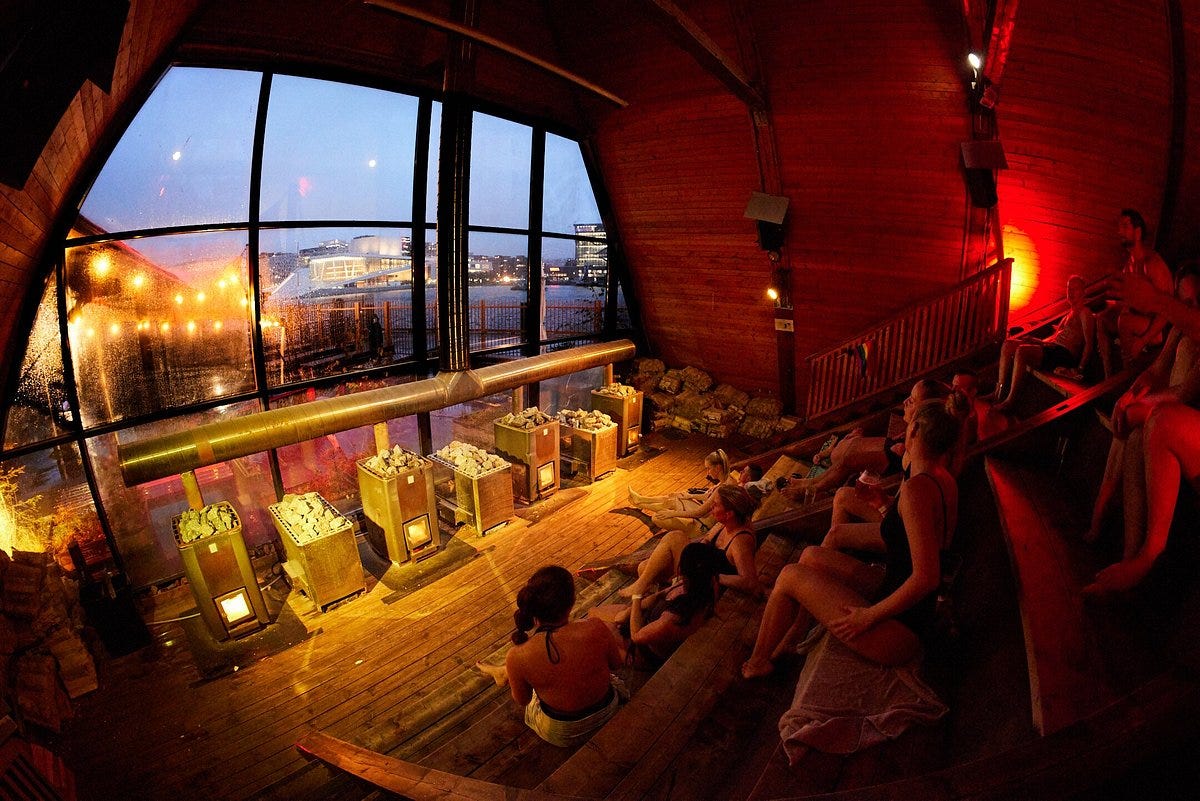


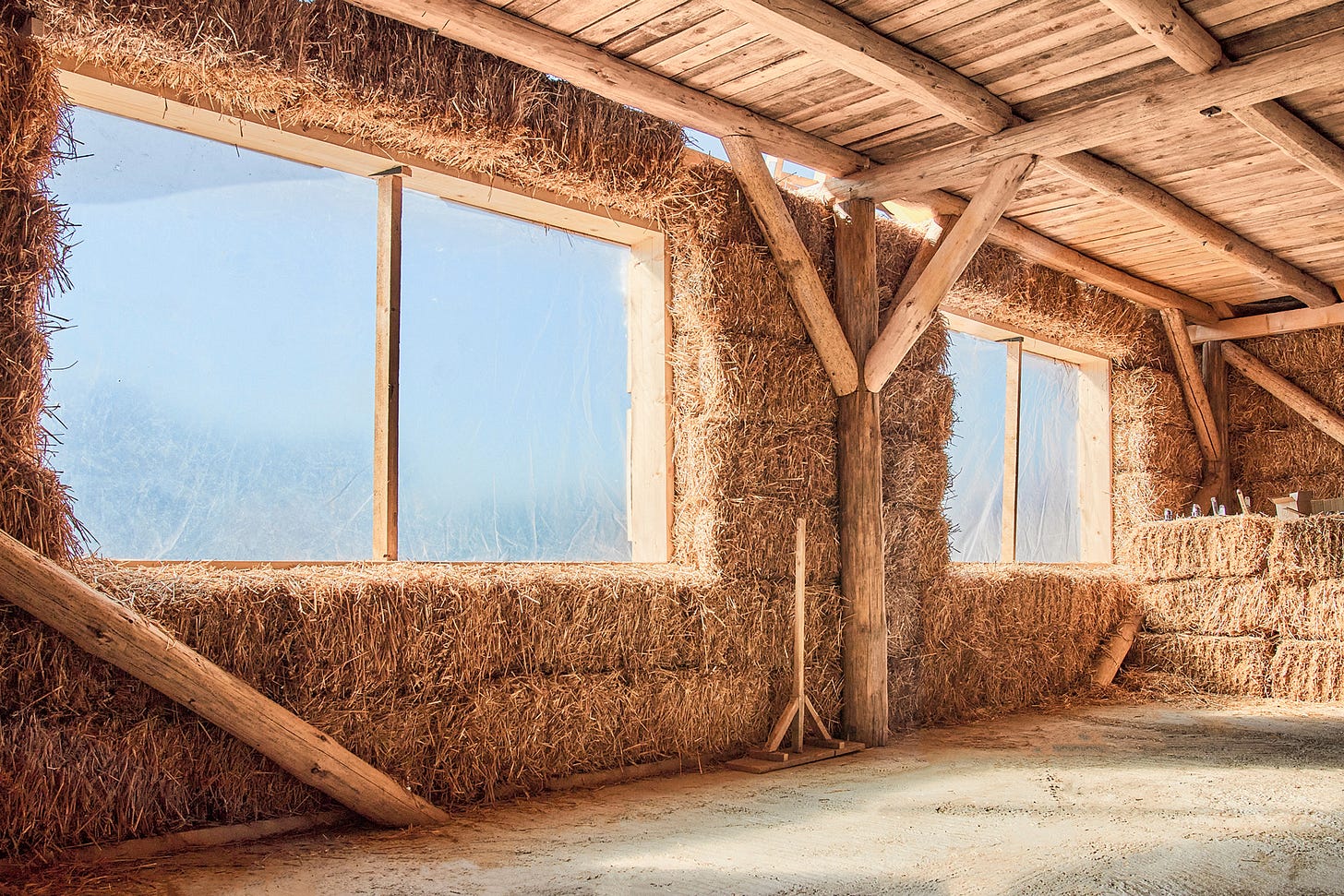
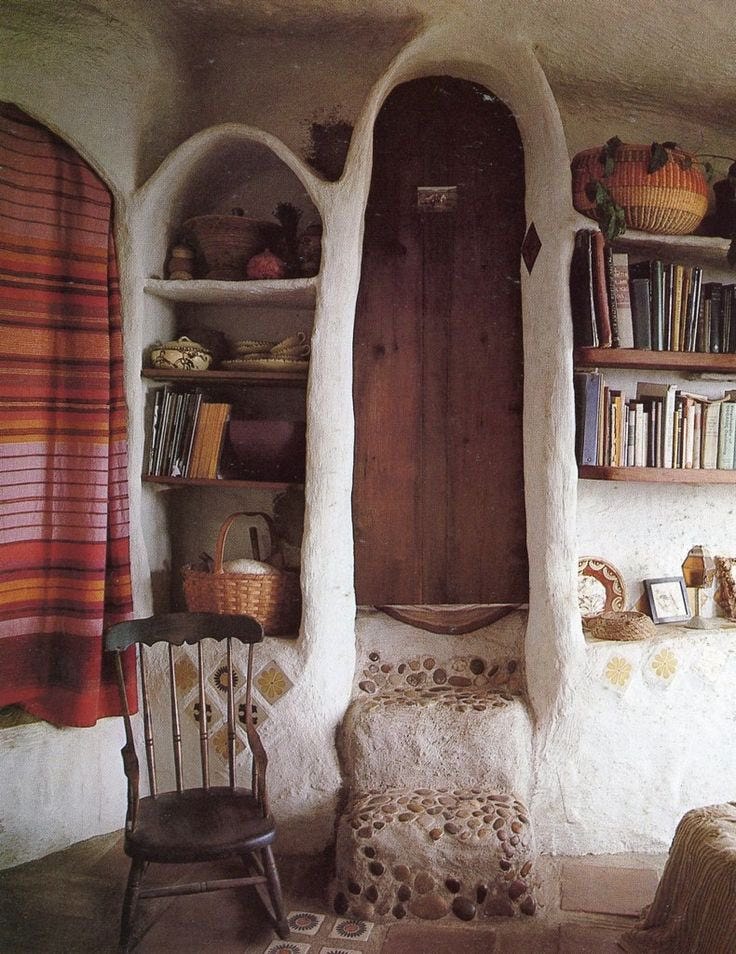
Absolutely love this post and the series it's part of. Urban Goats feature in our first SolarPunk Detective Story > https://www.solarpunkstories.com/buy-our-1st-story
This post by @FairlyLame_ also shows how The Tiny Tranquility community in Oregon have a huge communal plant nursery as part of their shared resources, like you describe here https://www.tiktok.com/@fairlylame_/video/7363615307090414866
Looking forward to reading more great posts by you :)
More great ideas. I really enjoyed reading this post. Very inspirational